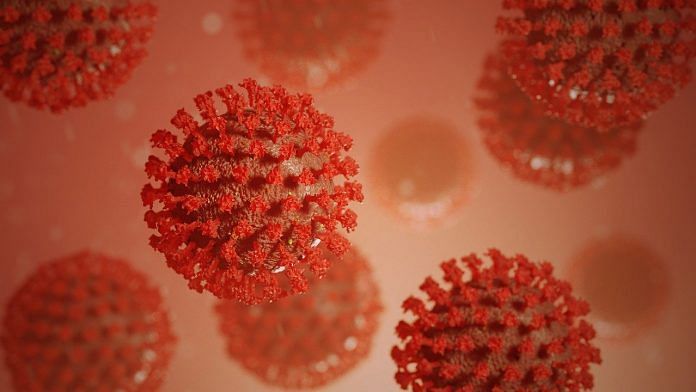New Delhi: Niclosamide, a drug commonly used to treat tapeworm infections, can help block the formation of enlarged cells with multiple nuclei in the lungs of Covid-19 patients, a new study by researchers from the UK and Italy shows.
The study, conducted at the University Hospital in Trieste, Italy, details how the drug can help in the treatment of SARS-CoV-2.
The same drug was used on patients with SARS during the 2004 outbreak.
In India, the Narendra Modi government has already given a go-ahead to conduct Phase 2 clinical trials of Niclosamide for treatment of Covid.
The team of same researchers had earlier examined organs of 41 patients at University Hospital in Trieste who died from Covid-19 between March and May 2020.
Syncytia formation
A cell normally contains only one nucleus, which acts like the information centre of the cells. Viral proteins sometimes cause an infected cell to fuse with neighbouring cells, leading to the formation of enlarged cells with more that one nuclei. These multinucleated cells are called syncytia.
The researchers found that almost 90 per cent of those patients had cells with the characteristic of syncytia.
They found that the Covid-19 patients’ lungs had cells containing 2 to over 20 nuclei.
Other studies have also confirmed that the spike protein of SARS-CoV-2 induces syncytia.
The team from King’s College London, Imperial College London and University of Trieste wanted to look for clinically approved drugs that could help prevent the formation of syncytia, and thus improve the outcome of Covid-19 patients.
To do so, they screened over 3,000 existing drugs to look for those that can stop syncytia induced from spike proteins.
They narrowed down on at least 83 that inhibited Spike-mediated cell fusion, which included 11 antipsychotic and eight antidepressants. However, the team wanted to look at drugs that also protected against virus replication.
Niclosamide was one of the most effective drugs when it came to inhibiting syncytia formation, the study found.
The researchers noted that all of the candidates that inhibited syncytia formation had a common property — these molecules regulate calcium levels in cells.
They also found that when lab cultured monkey cells were exposed to the SARS-CoV-2 spike protein, there was a sudden appearance of calcium ions.
Elevated levels of calcium ions in cells also activate the TMEM16F — protein involved in platelet activation during blood clotting and T cell (immune cells) activation.
Blood clots and an overactive immune system have both been markers of severe Covid-19.
The team found that Niclosamide helped moderate calcium levels and suppress TMEM16F activation, therefore blocking the formation of syncytia.
(Edited by Sanghamitra Mazumdar)
Also read: Why India sees a return of Covid-19 surge and faces a vaccine crisis



